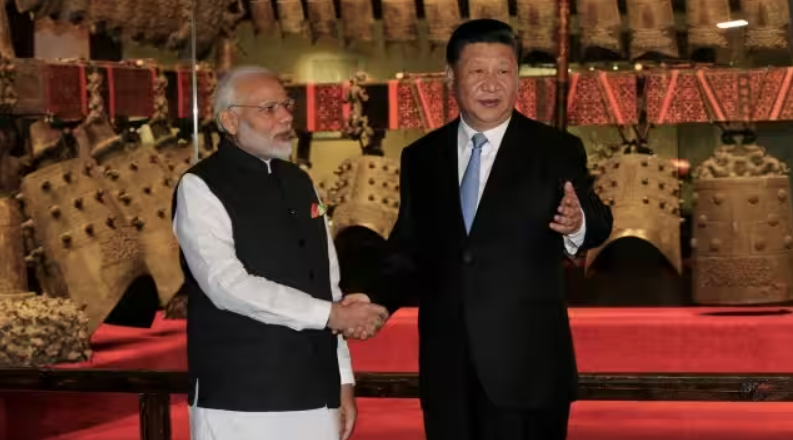The BRICS summit is being held in person this time, after three years of virtual meetings. The expansion of BRICS is a major item on the agenda. Around 23 countries are learned to have submitted their applications for membership in the grouping.

AS PRIME Minister Narendra Modi leaves for the BRICS (a grouping of Brazil, Russia, India, China and South Africa) summit in Johannesburg on Tuesday, all eyes are on a possible meeting between him and Chinese President Xi Jinping.
It would be their first scheduled bilateral meeting since the border standoff began in May 2020. Saying that the schedule is “still evolving”, officials did not rule out a meeting between the two leaders.
The BRICS summit is being held in person this time, after three years of virtual meetings. The expansion of BRICS is a major item on the agenda. Around 23 countries are learnt to have submitted their applications for membership in the grouping.
Briefing reporters ahead of the visit, Foreign Secretary Vinay Mohan Kwatra said, “We have a positive intent and an open mind when it comes to BRICS expansion.”
He said the modalities for the inclusion of new members into the BRICS are being discussed among the Sherpas of the grouping. “I would not want to prejudge the outcome of the discussions,” he said.
While Russian President Vladimir Putin will not attend the summit, his Foreign Minister Sergey Lavrov will be present.
Modi will attend the summit from August 22-24. On August 22, after reaching in the afternoon, he will attend the BRICS Business Forum leaders’ dialogue, followed by a BRICS Leaders’ Retreat in the evening. A discussion on global developments and concerns arising out of those developments is expected during the leaders’ retreat.
After three years of the border standoff, the in-person BRICS summit will be an important opportunity for Indian and Chinese leaders to meet and agree on normalising ties. But before that, military commanders have to agree on the disengagement of troops in eastern Ladakh.
On August 23, Modi will participate in the plenary sessions — there will be a closed plenary session which will focus on intra-BRICS issues, reform of the multilateral system and counter-terrorism.
On August 24, he will participate in a special event, “BRICS – Africa Outreach and BRICS Plus Dialogue”, being organised after the summit, which will include other countries invited by South Africa. During these sessions, the concerns and priorities of the Global South will be discussed, where the focus will be on partnership with Africa.
Modi last visited South Africa in July 2018, for the 10th BRICS summit. He also went for a bilateral visit in July 2016. South African President Cyril Ramaphosa visited India in January 2019, when he was the chief guest at the Republic Day celebrations.
After his visit to South Africa, Modi will pay an official visit to Greece on August 25, at the invitation of its Prime Minister, Kyriakos Mitsotakis. “This will be the first visit by an Indian Prime Minister to Greece in 40 years,” the Foreign Secretary said.
“Prime Minister will hold talks with Prime Minister Mitsotakis to discuss ways to further deepen the relationship. He will also interact with business leaders from both countries, as well as with the Indian community in Greece,” Kwatra said.
The MEA said that India and Greece enjoy civilisational ties, which have strengthened in recent years through cooperation in areas like maritime transport, defence, trade and investments, and people-to-people ties.
Then Prime Minister Indira Gandhi was the last Indian PM to visit Greece, in September 1983. The then Greece Prime Minister, Andreas Papandreou, had visited India thrice — in November 1984 for Indira Gandhi’s funeral; in January 1985 to attend a summit on nuclear disarmament; and in January 1986 as the chief guest for the Republic Day function.
MEA’s Secretary (West) Sanjay Verma said Greece is a “significant maritime power”. He said the two sides would discuss security and defence cooperation because of Greece’s naval capacity, and that will include training of personnel, joint development and co-production. “Defence and security will be at the heart of the ties, and the conversation will be substantial and future-oriented,” he said.